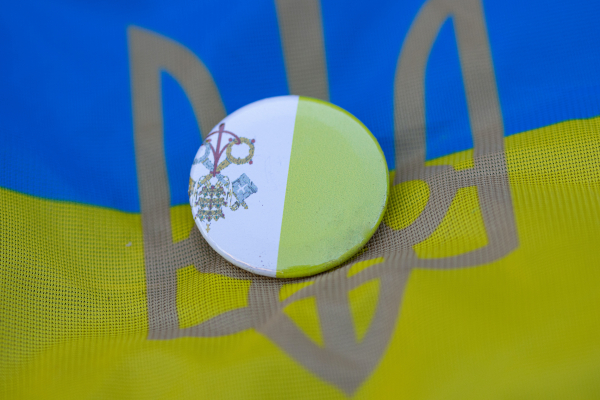
The Vatican announced on Saturday, Mar. 18, that it had closed its embassy in Nicaragua after the Nicaraguan government proposed suspending diplomatic relations. It is the most recent incident in a long-running campaign against the Catholic Church that the administration of Nicaraguan President Daniel Ortega has conducted.
Closure of Vatican Embassy in Nicaragua
According to PBS News Hour, the move by the Vatican came a week after the government of Nicaragua suggested terminating diplomatic ties with the Holy See. It came a year after Nicaragua coerced the papal ambassador to leave the country. Regarding diplomatic implications, it is unclear what else the proposed suspension would entail.
A Vatican official who spoke anonymously said that Msgr. Marcel Diouf, the Vatican's representative in Managua, departed the country on Friday and is now in Costa Rica. Latin Post reported that the Vatican had suffered another setback due to Nicaragua's decision to shut down its embassy in Managua, which the country's president, Daniel Ortega, ordered. Ortega was also responsible for ordering the closure of the Nicaraguan Embassy in Rome, located in the Vatican.
The leader of the Catholic Church, Pope Francis, has compared the government of Nicaragua to a dictatorship. It was determined that due to Ortega's decision, diplomatic relations would be "suspended." According to the source from the Vatican, the closure of the embassies does not necessarily signify the end of all connections between the two countries. Yet, it is considered a significant step toward the probability of that happening.
Furthermore, the previous year saw the expulsion of two separate communities of nuns from Nicaragua, one of which was from the Missionaries of Charity order established by Mother Teresa. Ortega labeled Catholic personalities that he perceived as sympathetic to the opposition as "terrorists" who had sponsored efforts to topple him as part of his campaign to remove himself from power. Scores of religious leaders were detained or forced to flee the nation during this time.
Since 2018, when Nicaraguan authorities began using excessive force to suppress anti-government demonstrations, relations between the church and Ortega's government have been steadily deteriorating. Later, the church tried to mediate between the government and the political opposition by providing demonstrators shelter in their churches, which certain Catholic officials initially offered.
Also Read: Pope Francis Speaks Out for Imprisoned Bishop in Nicaragua: A Cry for Justice and Freedom
U.S. Bishops Denounce Nicaragua Church Repression
Crux Now reported that in recent years, Pres. Daniel Ortega of Nicaragua has intensified his crackdown on the Catholic faith, arresting several priests, expelling missionaries, shutting down Catholic radio stations, closing a Catholic university, and even prohibiting a Catholic procession and pilgrimage in Managua last August.
In light of the Nicaraguan government's ongoing persecution of Catholics, which includes the recent imprisonment of a bishop for 26 years, the president of the U.S. bishops' conference is appealing for federal involvement to restore human rights in the Central American nation.
Bishop Rolando Alvarez of Matagalpa, Nicaragua, was condemned to 26 years in prison, stripped of his citizenship, and fined heavily on Feb. 10 for treason, undermining national integrity, and distributing false information after refusing exile.
The U.S. State Department "condemns this action by the Government of Nicaragua and urges Bishop Alvarez's prompt release," expressing appreciation for Pope Francis' "vigorous lobbying" on Bishop Alvarez's behalf.
Related Article: Nicaragua Considers Cutting Ties with Vatican Over Controversial Remarks












